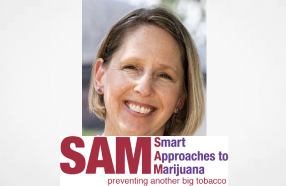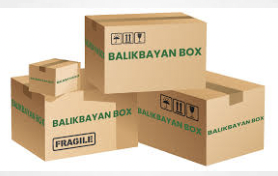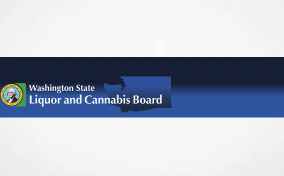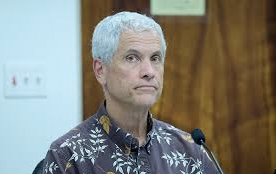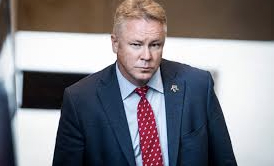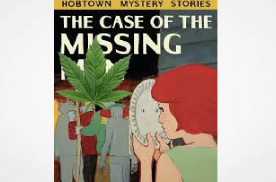Interesting.
Sabet is very busy in DC and has obviously rallied the troops countrywide.
In the past few days Sue Homla has managed to place two opinion pieces in NH publications
Opinion: Sue Homla – chairman of Smart Approaches to Marijuana NH : Marijuana Expansion – Watch the Stitches on This Fastball
Gov. Kelly Ayotte’s common-sense leadership toward Granite State public health, the State House effort to legalize recreational marijuana has dimmed somewhat. However, New Hampshire’s Therapeutic Cannabis Program (TCP) is the renewed legislative focus of pro-marijuana advocates. This year there are seven House bills aimed at this effort:
1. Change the definition of cannabis to exclude “seed” so the Alternative Treatment Centers (ATCs) may acquire seed product and formulate other items for their menu. This is an in-depth issue involving federal guidance and USDA policy. However, some limitations for applying federal guidance to New Hampshire law exist because our state does not use the same standardized terms for marijuana as the federal government. In addition, our state does not have a USDA-approve hemp production plan to ensure source rule compliance for seed product. (HB51)
2. Allow TCP cardholders and caregivers to grown their own plants, and authorize the ATCs to sell plants to them. The problem: There is no oversight mechanism or funded inspection mandate to ensure compliance with the law. It also allows the ATCs to get into the plant selling business with no limit on the number of seedlings they can possess. (HB53)
3. Allow ATCs to operate a second cultivation site so they can grow marijuana outdoors or in a greenhouse. It also includes a provision to solicit input from TCP cardholders, which is a great way to keep them engaged so they can mount a full court press, on behalf of the ATCs, towards a municipality who is considering allowing a cultivation site. (HB301)
4. Waive the TCP card fee for veterans, even though the ATCs already offers discounted products to veterans, and there are unintended issues with excluding other deserving groups from a fee waive. (HB205)
5. Allow ATCs to become for-profit, which would open the floodgates to untold amounts of marijuana investor money into New Hampshire. This is a genie we will never get back in the bottle. (HB54)
6. Increase TCP cardholder legal marijuana possession amounts by 100 percent, without lengthening the frequency of times the cardholder can purchase product from the ATCs. (HB190)
7. Remove the felony penalty for TCP cardholders and their caregivers who sell their product to unauthorized users. This penalty has served as effective deterrence against criminal malfeasance and is not causing any known issues. (HB380)
There are three important ways in which marijuana advocates are hoping to widen NH’s TCP infrastructure:
1. An expansion of the current laws.
The laws surrounding NH’s Therapeutic Cannabis Program have been in constant evolution since the program was enacted in 2013. With any new program, it is understandable that adjustments may need to occur.
However, the adjustments we’ve seen since 2013 are more than tweaking a well-tuned system, but are leaning into as much expansion as the legislative body will tolerate each year. Lost in all this discussion is the fact that marijuana, even used medicinally, is still a Schedule 1, federally-illegal drug. Regardless of the reasons for use, marijuana poses serious health risks to include moderate to high addiction. In addition, the input from medical professionals on how someone should use the product typically stops after the approval of a TCP card. After that, dosing and product risk information that TCP cardholders are relying on for “medicine” are provided by ATC-paid medical staff and/or budtenders, who help customers select from a variety of products that are often classified by names such as Frosted Jungle, Dark Rainbow, Jealous Mike, and Banana Bread.
2. The expanding list of the qualifying medical conditions.
Since NH’s Therapeutic Cannabis Program was enacted in 2013, we have added about twelve additional items to the list of qualifying medical conditions. Of note, the most recent addition – generalized anxiety disorder – is becoming so ubiquitous in our culture (and particularly in our younger population), that the bar for qualifying for a TCP card is becoming dangerously low.
Of concern, some conditions are being put on the qualifying list even though the science is nowhere settled on if marijuana will help or harm. For example, post-traumatic stress disorder (PTSD) was recommended as a qualifying medical condition by the Therapeutic Cannabis Medical Oversight Board and approved by the legislature, even though there is widespread data which indicates that using marijuana to treat PTSD is not supported by medical analysis quite yet. (Source: https://pmc.ncbi.nlm.nih.gov/articles/PMC9882422/)
Of note, the FDA only authorized a clinical trial to study using marijuana for treatment of PTSD in veterans only a couple of months ago in November 2024. This also applies to Autism, another condition we approved to go on the list, even though there is real concern about psychosis risk by many in the medical community. (Source: https://pmc.ncbi.nlm.nih.gov/articles/PMC9407973/)
This expansion of qualifying medical conditions illustrates a concerning pattern of our state’s cart-before-the-horse approach, and our disinterest in any documentation which runs contrary to the marijuana advocate’s belief that pot aids all ailments.
3. The push by pro-marijuana advocate groups to expand the TCP cardholder roster.
This year, one of the leading marijuana advocate groups in New Hampshire is launching a campaign to increase the number of TCP cardholders. At this point, we have had years of non-stop conversations on marijuana, and its sold recreational in every state surrounding New Hampshire. When you still need to advertise to get more TCP cardholders, then it has little to do with providing an alternative resource for individuals experiencing debilitating medical conditions and more to do with getting additional people to use marijuana. The goal is to push the Overton Window on public perceptions around marijuana use and de-stigmatize it as a Schedule 1, federally-illegal drug.
Unfortunately, we’ve seen this play before. Advertising a product to get more users is exactly what Purdue Pharma did to get more people to use OxyContin. In hindsight, no one thought that was a good idea.
The expansion of NH’s TCP laws deserve the keen attention of our legislators. Everyone needs to keep their eyes on the stitches of this fastball, because the pro-marijuana advocates will never stop trying to make New Hampshire go up in smoke.
Homla has also published this in the past few days
Sue Homola: Nip incremental marijuana expansion in the bud
AS THE HOPE for recreational legalization fades across the State House in Concord, pro-marijuana legislators and advocates are setting their sights on another goal: significantly expanding the state’s Therapeutic Cannabis Program (TCP) laws. This year, there are seven House bills aimed at that goal:
Change the definition of cannabis to exclude “seed” so the Alternative Treatment Centers (ATCs) may acquire seed product and formulate other items for their menu. (HB 51);
Allow TCP users and caregivers to grow their own plants, and authorize the ATCs to possess an unlimited number of seedlings and get into the plant selling business. (HB 53);
Allow ATCs to operate a second cultivation site so they can grow marijuana outdoors or in a greenhouse. (HB 301);
Waive the TCP card fee for veterans. (HB 205);
Allow ATCs to become for-profit, which would open the floodgates to Big Marijuana investor money into New Hampshire. (HB 54);
Increase the legal TCP cardholder and designated caregiver possession amounts by 100%, without lengthening the frequency of times the cardholder/caregiver can buy product from the ATCs. (HB 190);
Remove the felony penalty for TCP cardholders and designated caregivers who sell their product to unauthorized users. (HB 380).
Like all things, the devil is in the details. With regard to the bill to allow TCP cardholders and designated caregivers to grow their own plants, this bill comes with no oversight to ensure the conditions of the law are being met by the authorized home growers. It’s completely on the honor system and has no funded inspection mechanism. In addition, if law enforcement personnel have concerns about a residence, they must obtain an affidavit just to ask the TCP office if the person in question is a legitimate grower. Then the TCP “may” give them this information, or they may not. Furthermore, any search warrant law enforcement may execute is shielded from 91-A protections, so neighbors of an illegal growing operation may have no idea of criminal activity in their close proximity.
Even former Democrat governor Sen. Maggie Hassan understood the negative implications of cracking open the door of homegrown TCP product when she insisted it be removed from HB 573 in 2013.
In House committee testimony, proponents of these bills assured committee members our state already has felony protections in place to deter malfeasance as a result of allowing patients and caregivers to grow their own supply and legally possess 100% more marijuana than current law allows. Except there is a catch in that there is another bill being considered in the State House this year that would strip away that felony and wipe it off the books. Sadly, the folks hoping to raise the legal possession limit are fully aware of the other effort to remove the felony penalty for selling marijuana to unauthorized users.
One of the most concerning issues is this year’s campaign by one of the leading marijuana advocacy groups to expand the roster of authorized TCP cardholders by advertising the program. When expanding the number of TCP users is the goal of any effort, then it has little to do with providing an alternative resource for individuals experiencing debilitating medical conditions and more to do with getting additional people to use marijuana. Advertising a product to get more users is exactly what Purdue Pharma did to get more people to turn to OxyContin. How did that turn out?
Understandably, TCP cardholders are trying to contend with the higher cost of a state-regulated product and overcome issues with accessibility to ATCs. However, there are ways to address these issues without making a free-for-all expansion of TCP policies.
Perhaps it could start with a review of the state-sanctioned ATC financials to see if there are some cost savings that can be generated internally that could drive down prices. According to the 2022 Therapeutic Cannabis Program Annual Report, page 21, each ATC provides anywhere from $450,000 to $500,000 in discounts annually to veterans, seniors, and compassionate care patients. That’s very generous considering New Hampshire only has 13,300+ TCP cardholders, and I am sure it’s appreciated by those in need.
The bills being proposed in this year’s legislative session deserve attention. Just because we are pairing the term “medical” onto marijuana does not mean there is any clinical oversight happening with regard to user dosage and safety. Most importantly, marijuana is still a Schedule 1 federally illegal drug. This fact is understood by Gov. Kelly Ayotte, and her clearly communicated stance on recreational legalization and her common sense approach to Granite State public health deserves our appreciation.
Having said that, it is important for us to keep our eye on this effort to dramatically expand TCP laws, because this is how widespread legalization and public desensitization about marijuana use is going to be slipped into NH — through the TCP back door.
